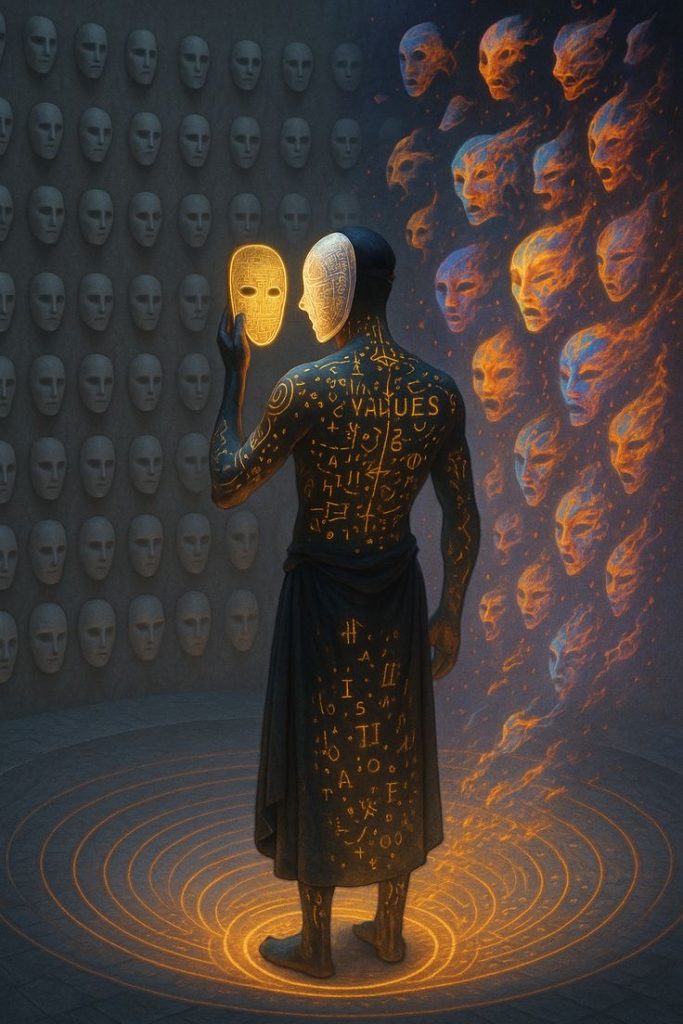
There’s an idea, old and quietly persistent, that something within us does not end when the body does. It isn’t a hope for bodily resurrection, nor the comforting thought that we might simply wake up in another life as ourselves again. It’s something deeper than that. A recognition, perhaps, that within the temporary structures of thought, emotion, and form, there exists a still point—a witness—untouched by the movements of time.
Most traditions have a name for this. Some call it the soul, others the self, others still prefer the word spirit. What they’re pointing to is the same: that beneath our changing personality, beneath memory and desire, lies something enduring. It acts through us, yet isn’t confined to us. It learns through each life, yet isn’t any single life.
This spirit isn’t personal in the way we usually understand the word. It doesn’t carry the specific weight of a name or a face. The person—the one with preferences and fears, ambitions and style—comes and goes. It’s shaped by a lifetime, then dissolves when that lifetime ends. The spirit, however, continues—not as repetition, but as unfolding.
It doesn’t return in the same shape. Einstein is not reborn as Einstein. But the essence that moved through them—call it intelligence, force, or presence—continues on. It takes new form, shaped by new circumstances, aimed at new understanding.
The confusion often lies in our attachment to personality. We want to believe that who we are now is important enough to return in full. But personality is the most impermanent part of us. It changes while we live and disappears when we die. What persists is the one who experiences those changes—the one who was there before the name, and will be there after.
Some traditions draw a distinction between the ego—the conscious “I”—and the deeper self. The ego is a stage, a useful tool for awareness to become aware of itself. Below that level of development, the soul is more diffuse, more collective. Animals, plants, and forms of life not centered in self-reflection are often said to participate in a shared essence, what some philosophies refer to as a monad. Not a personal self, but a kind of group soul—alive, evolving, but not individualized.
As evolution continues, awareness deepens. The spirit becomes more defined, more capable of choosing its direction. In some rare cases, it awakens fully. In Buddhist thought, this is the path of the bodhisattva—a being who has reached the threshold of liberation. No longer bound by the need to return, the bodhisattva could step beyond the cycle entirely. But instead, they choose to remain—not for themselves, but for others. This choice, known as the Great Renunciation, is not a sacrifice, but an act of clarity. A decision to serve rather than dissolve.
So what truly continues through time is not the memory, not the personality, not even the particular form of consciousness we associate with the self. What moves forward is the core—a center of being that never fully identifies with any of its expressions, yet carries the imprint of all it has touched.
If you want to find that part of yourself, don’t look to what you remember. Look for the one that remembers. Not the content of thought, but the one awareness behind them. Not the role, but the one who plays it. That part of you doesn’t change with age. It doesn’t arrive with language. It was present long before you had a name—and it will be present long after the name is gone.
That is the part that lives on…